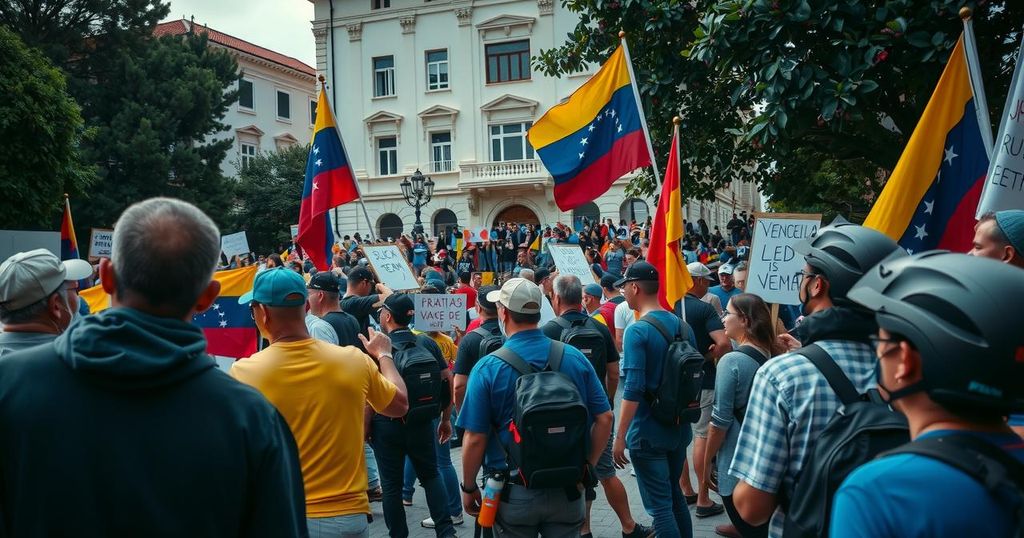Venezuelan government opponents protested against police and intelligence agents stationed outside the Argentine embassy in Caracas. The U.S. termed this a serious violation of international law, with Argentina calling it harassment. The dissenters belong to the Vente Venezuela party, led by María Corina Machado, who accused the regime of a new siege. Diplomatic ties between Venezuela and the U.S. have been deteriorating since 2019 amid rising political tensions.
Six Venezuelan opposition members have raised their voices in protest against local police and intelligence agents, who have reportedly been stationed outside the Argentine embassy in Caracas for several hours. This situation has led the U.S. government to label the actions as a “serious violation of international law,” while Argentina’s Foreign Ministry condemned it as harassment. Most of the dissenters are affiliated with the Vente Venezuela party, led by Maria Corina Machado, who criticized the “new siege by hooded officials” that began Saturday night and continued into Sunday. Their concerns escalated following Machado’s call for a significant mobilization on December 1, which incited accusations from Venezuelan authorities that she was involved in conspiracy efforts against President Nicolás Maduro’s government.
According to the Vente Venezuela party, the embassy has experienced power outages and is encircled by vehicles associated with the government, blocking traffic around the premises and disrupting communication signals. Argentina’s Foreign Ministry stated that the mobilization of armed troops and street closures in the surrounding area “constitute a disturbance of security,” urging the international community’s condemnation of these actions. In support, the U.S. Embassy in Venezuela expressed its vehement disapproval of the harassment directed at asylum seekers, stating that such deployments and blockades represent a significant breach of international norms. It demanded that the Venezuelan government fulfill its international obligations and ensure safe passage for individuals seeking asylum.
Diplomatic relations between Venezuela and the United States have been strained since 2019, resulting in several diplomatic complexities. Opposition members of the Venezuelan government sought refuge in the Argentine embassy following arrest warrants issued against them by the Venezuelan Attorney General’s Office, which alleged they had engaged in activities intended to destabilize the current regime. This ongoing tension has further been complicated by Argentina’s and Brazil’s diplomatic involvements, particularly following remarks made by Brazilian President Javier Milei disputing the legitimacy of Venezuela’s elections held in July.
The tension between Venezuelan government officials and opponents has heightened significantly amid ongoing political turmoil in the country. In March, several opposition politicians entered the Argentine embassy, seeking asylum after facing arrest warrants for purportedly inciting violence against the Maduro government. Since then, the situation has escalated, particularly after critical comments from regional leaders regarding Venezuela’s governance, which further aggravated the diplomatic relationship between these nations and the Venezuelan regime.
In summary, the continued presence of police and intelligence agents outside the Argentine embassy has prompted serious international concern, particularly regarding the rights of asylum seekers. The involvement of both the U.S. and Argentina illustrates the gravity of the situation, as accusations of harassment and violations of international law have surfaced. This incident exemplifies the strained political landscape in Venezuela and highlights the growing need for diplomatic solutions to ensure the safety of individuals opposing the government.
Original Source: apnews.com






